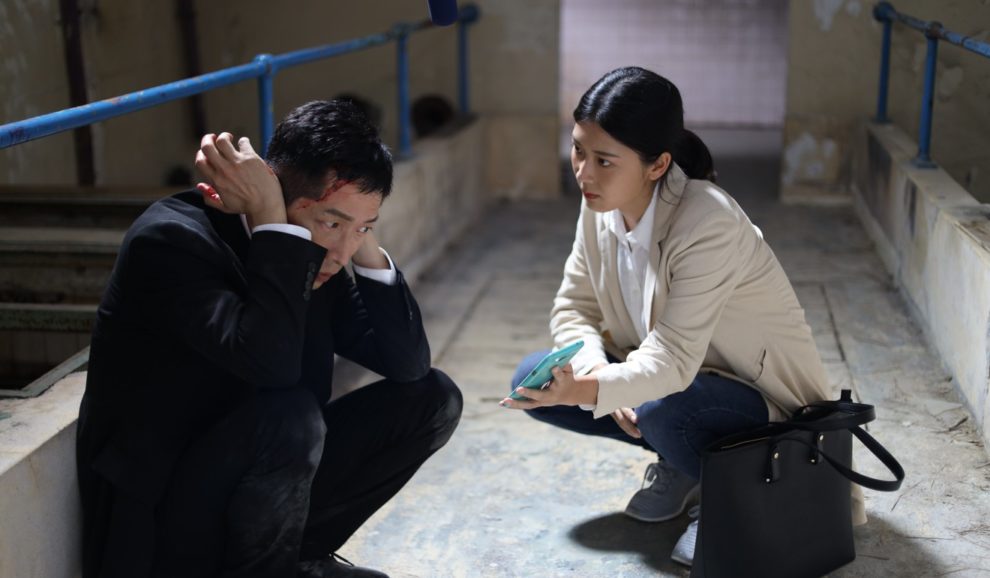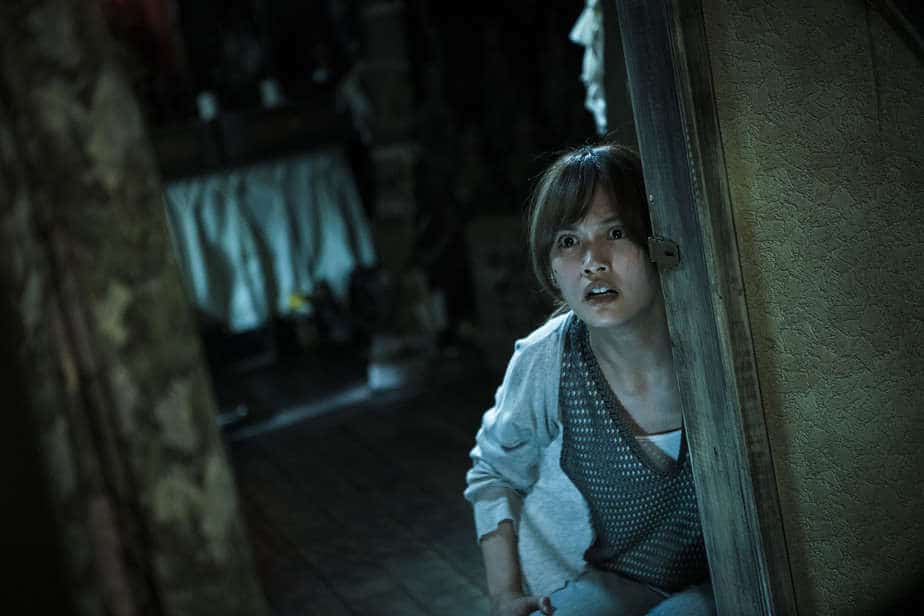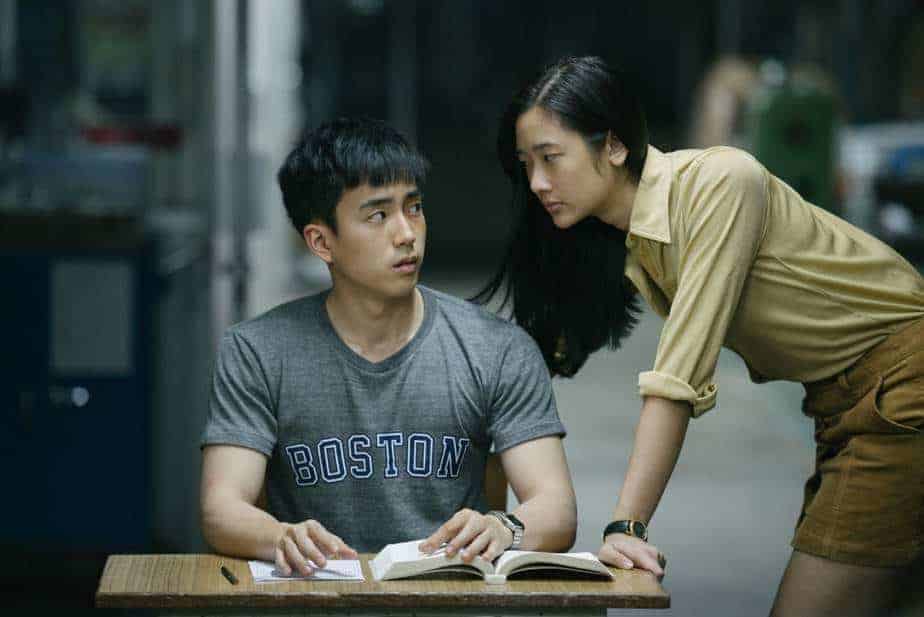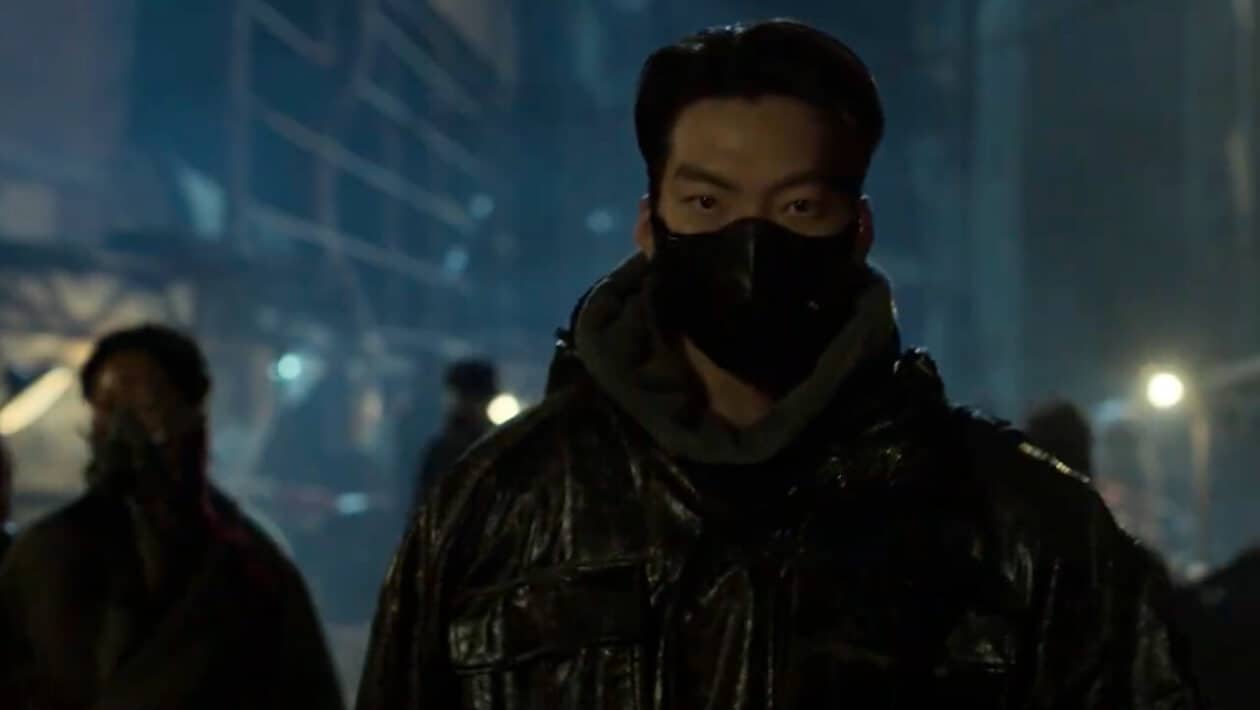Singer and actor Steven Ma is a wholesome figure in Honk Kong's pop scene, best known for his portrayals of historical characters in many period TVB drama series. For this very personal project “Till We Meet Again”, presented by Hong Kong distribution company Golden Scene, Ma sits on the director's chair and opens up about his widely documented history of depression.
Till We Meet Again is streaming on Focus Hong Kong

The film opens with salesman Ng Ka-wai (played by Ma) in a good mood as he is preparing to see his mother Mui (Josephine Ku). Despite the fact the she has refused to see him for over a decade, he is confident that he will sooner or later be reunited. Why doesn't she want to meet him? Ng's world is rather small, we see he is good at his work but has some problems with the boss, he meets his retired bus driver father sporadically and his good friend Chi (Himmy Wong) seems to be the only person he chats and opens up. When Ng experiences a sudden sickness and ends up at his treating doctor, we discover the nature of his illness and his strange private life.
He is suffering from depression and panic attacks since his mum died 10 years before, his malfunctioning grieving process and the insurmountable amount of pain makes him think he still has a chance to meet his mum and relief his guilt. In fact, Ng sadly feels he contributed to an early passing of his beloved mum and his mind just cannot accept it. His doctor, the psychiatrist, Tracy Fung Mei (Jennifer Yu) is sincerely attached to Ng who has helped her to untangle some old familial knots and reconnect with her estranged father (even psychiatrists are humans with problems!) At mid-film a very long sepia-tinted flashback reveals what happened with Ng's mum and her illness, and while Ng's discomfort is reaching a boiling point, another truth is revealed and it's time to face it.
Inspired by real facts and by Steven Ma's own struggle with depression after the passing of his mother in 1999, “Till We Meet Again” is a psychological drama with a big heart and some flaws. While it surely hits the spot in conveying its message and its core motivations, it can be said that the journey is a bit bumpy. As the central story is relatively small (surely not in its intensity) it feels at times a bit overstretched and dangerously indulging in dark tear-jerking moments and the addition of a late twist is washed down by its predictability. A good balance juggling present, past, flashbacks, imagination and reality is a difficult thing to achieve; here there are conflicting results. On one hand, the ordered chaos well describes the protagonist's feelings and what he experiences in his panic attacks and mood swings. On the other, some parts are confusing. To characterise and distinguish the flashbacks, the scenes have a sepia hue, like and old picture and it helps to a point, but it becomes rather boring in the very long central flashback.
One great appeal of “Till We Meet Again” for Hong Kong audience and not, is his truly authentic local flavour. Leaving aside the modern and glamorous parts of Hong Kong, the film is entirely filmed in the Kowloon peninsula and it's easy to spot some beloved film locations like the swimming-pool-tiled China Café we saw in Johnnie To's “PTU”, the food stalls and the lively streets of Sham Shui Po (where the director grew up) and the abandoned facility seen in “Project Gutenberg”, “White Dragon” and more. Cha chaan teng (HK Cafes) and old council apartments are the comforting backdrops of Ma's affectionate glance to his city and its people.
Equally in full Hong Kong Cinema style, the film introduces (very gently) some ghosts in the narrative. In a broader sense ghosts are always with us in form of memories, regrets or concerns, but when Mia talks with other wandering souls of deceased people or with Tracy's dad in his pre-dementia status, we really get a feeling of a supernatural dimension co-existing with us. Of course, it's all done in censor-safe mode, as the figment of a deranged mind, but it is nevertheless a very welcome addition, if only to enjoy Josephine Ku's beautiful nuanced performance. Steven Ma in the actor role, gives all his heart to Ng, and here, in his performance more than everywhere else we can see how personal and dear this project was to him. Finally, Jennifer Yu once again confirms her position in the circle of Hong Kong's young talented actors.
All in all, “Till We Meet Again” despite some flaws and bordering on the cloying side in few occasions, offers an accurate and empathic description of mental illness and a very relatable portrayal of loss and the struggle of grieving a loved one.















